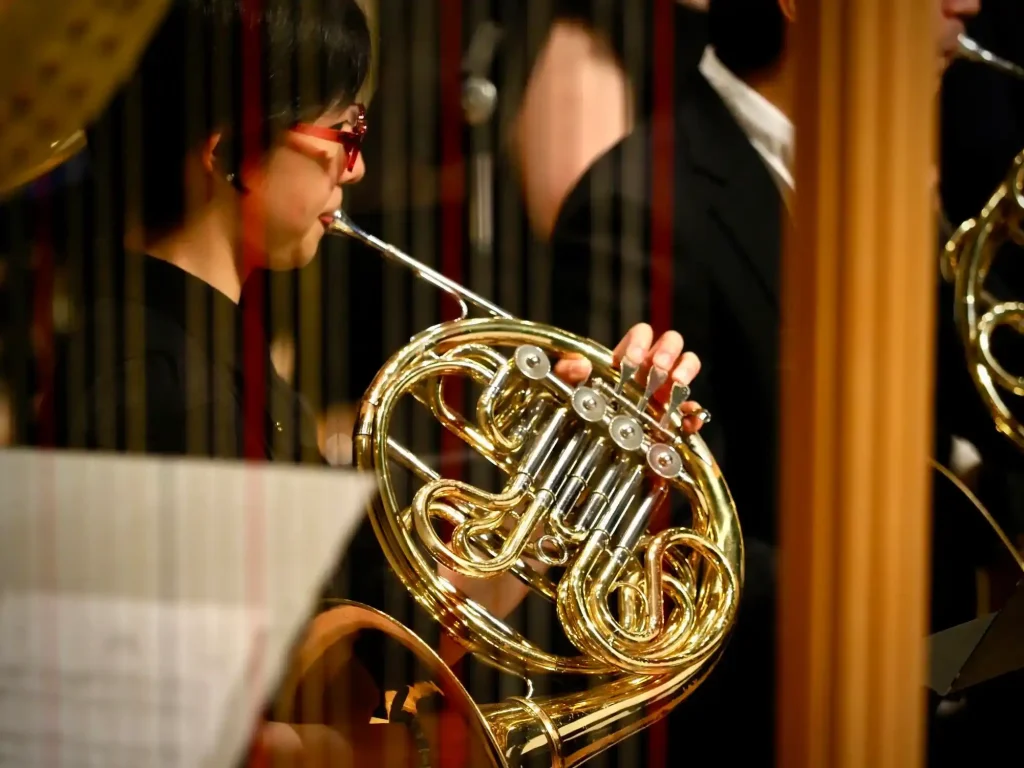Guide to Choosing the Perfect French Horn

Choosing a musical instrument is an exciting journey, and for many aspiring musicians, the French horn holds a special allure. Known for its rich tones and smooth sound, the French horn is a unique instrument that captivates listeners wherever it is played.
But how do you choose the perfect one? Whether you’re just starting out or looking to upgrade, this guide will help you navigate the important factors to consider when picking a French horn.
By the end, you will feel informed and ready to make a decision that fits your musical journey.
Understanding the French Horn
The French horn is a brass instrument that produces sound by buzzing lips into a mouthpiece. Its coiled design and large bell help create the warm, full tone that it is famous for.
Unlike other brass instruments, the French horn is known for its relaxing and mellow sound, which makes it suitable for various music styles, from classical to contemporary. Knowing these characteristics is essential when you begin your search for the right model.
Types of French Horns
When exploring the world of French horns, you’ll encounter different types, each designed for specific playing styles. The most common types include:
Single French Horn
The single French horn is the most straightforward version, featuring one continuous set of tubing, most often pitched in the key of F. Its simpler design makes it lighter in weight, easier to manage, and more affordable, which is why it’s a popular choice for beginners and young students. The F horn produces a warm, mellow sound but has some limitations in its high register compared to other types.
Double French Horn
The double French horn combines two sets of tubing-usually in F and B-flat-connected by a valve mechanism called a “thumb trigger” or “change valve.” This setup allows players to switch instantly between the two keys, greatly expanding the horn’s range and improving intonation across different registers.
Triple French Horn
The triple French horn adds a third set of tubing-commonly in high F-to the standard double horn configuration. This gives experienced players even greater flexibility, especially for challenging, high-register passages, and can improve accuracy in difficult orchestral or solo works. Triple horns are more complex, heavier, and expensive, and they require strong technique to manage effectively.
Assessing Your Skill Level
Your skill level plays a vital role in choosing the right French horn. For beginners, a single French horn is usually the best choice due to its lightweight design and ease of use. It helps new musicians develop their skills without being overwhelmed.
As you grow in confidence and ability, you can consider transitioning to a double or even a triple horn.
Consider Your Budget
Your budget is another crucial aspect to keep in mind when selecting a French horn. Prices vary significantly based on brand, type, and quality. For beginners, it’s wise to look for an affordable option that still offers decent quality.
As you gain experience and if you find yourself playing often, you might want to invest in a higher-end model that meets professional standards.
Try Before You Buy
One of the best ways to find the right French horn is to try it out before making a purchase. Visit a local music store or a school music program that allows you to test different models.
Pay attention to how each horn feels and sounds. How easily can you play it? Does the sound resonate well with you? Taking the time to experiment with different instruments can save you from potential regrets later on.
Check the Brand and Quality
There are several reputable brands known for manufacturing quality French horns, and it’s essential to research these before making a decision. If you’re purchasing a used instrument, inspect it thoroughly for any damage or wear. A well-maintained French horn can last for years and provide excellent sound quality.
Understanding Maintenance Requirements
Each instrument requires some level of maintenance, and the French horn is no exception. Regular cleaning and oiling are essential to keep your instrument in top shape.
Pay attention to how easy the parts are to clean and maintain. Some models have more intricate parts that may require additional effort. Investing in a suitable maintenance kit can help ensure your French horn stays in great condition.
Finding the Right Mouthpiece
The mouthpiece is an often-overlooked component when selecting a French horn. Different mouthpieces can significantly affect how the horn plays and sounds.
A good mouthpiece that fits well can make it easier to produce a beautiful sound. It’s worthwhile to try various mouthpieces to find one that complements your playing style and suits your mouth shape.
Listening to Different Types of Music
To better understand the capabilities of your future French horn, spend time experiencing various types of music that feature the instrument. Listen to orchestras and solo performances.
Notice how the French horn instrument is used in different genres and how it contributes to the overall sound. This exploration can ignite your passion for playing and provide inspiration for your musical growth.
Seeking Advice from Musicians
Engaging with others who play the French horn can be invaluable when choosing your instrument. They can offer insights based on their experiences and provide guidance on models that might suit your needs.
Whether through school, music camps, or local musicians, asking for advice can help you gather perspective and make an informed decision.
Incorporate Lessons into Your Decision
If possible, consider starting lessons with a private teacher or at a music school. A professional can provide invaluable support as you learn about the French horn and guide you in selecting the right one.
Your teacher can help you understand what factors to consider based on your personal goals and abilities.
Check Warranty
Once you have narrowed down your choice, take the time to review everything you’ve learned. Confirm that the French horn meets your needs in terms of sound, maintenance, and comfort.
It’s also vital to examine the sales terms, warranty, and return policy before making a final commitment. Being thorough in this process will help ensure that you are making a wise investment in your musical journey.
Embrace the Journey
Choosing the perfect French horn is just the beginning of an exciting musical journey. Embrace the process, and remember that learning an instrument takes time and practice. As you develop your skills, you’ll discover how much fun playing the French horn can be.
If you enjoyed this article and would like to read more like it, please check out the rest of our blog today.





